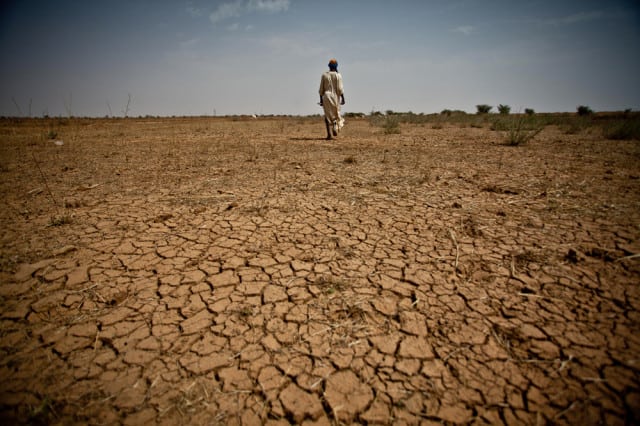MATT CHILLIAK

People living on arid land like this don’t need technology, they need a fairer distribution of the food we’ve already got.
Unless you have been living under a rock you probably know our school has a money problem to the tune of a projected $44.5-million budgetary shortfall.
My interest was naturally piqued when I heard that the province and PotashCorp will fork over $50 million to the University of Saskatchewan. The move was announced on Dec. 12 of last year.
“Hooray!” I thought, naively believing that this would perhaps mean a temporary fix for the university’s budget problems. Perhaps they could even save the doomed Kenderdine Campus that is of such value to our science and fine arts departments.
My optimism was quickly crushed when I found out that this huge donation from the province and PotashCorp isn’t going to protect the U of S from moving into the red, but is tied to establishing the Global Institute for Food Security.
GIFS is touted by university President Ilene Busch-Vishniac, Premier Brad Wall and PotashCorp CEO Bill Doyle as the way to fix what they claim is a global food shortage.
However, the source of the global hunger problem is not one of production. The world produces more than enough food. The problem is one of distribution.
The current global system of commodity distribution produces massive inequality in how much food ends up where. Wealthy nations receive much more than they need and impoverished nations do not receive nearly enough. The saddest part is that much of the food we in wealthy nations receive winds up going to waste.
Why will this agricultural research centre receive $50 million to solve a “problem” when the source of that problem — global wealth inequality — is already known and all too often ignored? Perhaps it has something to do with money, as these things often do.
Agricultural research and the developments it spawns produce bigger crops here in Saskatchewan, and this means more profit for the province.
Wall hinted at this economic motivation when he said, “Advancing Saskatchewan’s agricultural advantage allows us to significantly increase the global food supply… while building the next economy, an innovation economy, here at home.”
Money and prestige for both the university and the province are the crux of why budget problems are on the back burner.
While the GIFS website talks about “improving agricultural trade practices and policies,” it doesn’t tell us how these improvements will be brought about, or what they might look like.
Our university rewards departments that produce financial benefits. In Wall and Doyle’s eyes, the arts, humanities and basic science departments just don’t pay off like solving the world’s hunger problem does. And Busch-Vishniac is all too happy to agree with them if it means a brand new $50-million facility on her campus.
—
Photo: Oxfam International/Flickr
Leave a Reply